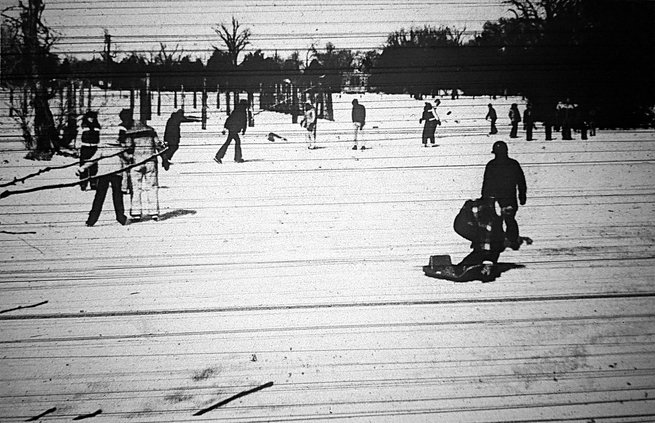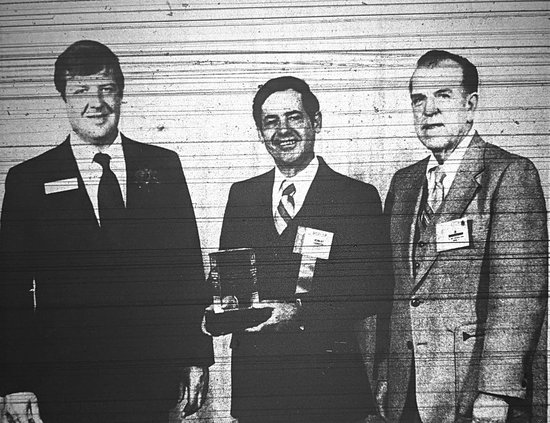Each week we’ll take a step back into the history of Great Bend through the eyes of reporters past. We’ll reacquaint you with what went into creating the Great Bend of today, and do our best to update you on what “the rest of the story” turned out to be.
The Lake Placid Winter Olympics of 1980 was remarkable because the U.S. ice hockey team beat the Soviet Union which was heavily favored to win, and went on to beat out Finland, clinching the gold medal.
But the bigger story, at least based on Great Bend Tribune coverage, was the winning streak of speed skater Eric Heiden, who won an unprecedented five individual gold medals, set four Olympic records, and one world record this week in 1980. Heiden went on to become a surgeon, turning down most of the sponsorship opportunities that came his way because he preferred anonymity over and felt he had enough money, according to a 2002 report by Tom Graham of the San Francisco Chronicle.
In the middle of it all, the U.S. announced on Feb. 20 it would boycott the Moscow Olympics later in the year when the Soviet Union ignored President Jimmy Carter’s deadline for troop withdrawal from Afghanistan.
“The deadline imposed by President Carter passed without comment in Moscow, and there was no immediate reaction to the State Department spokesman’s announcement,” the Associated Press report stated.
Other nations soon followed suit. Here’s a fun fact: It was 1986 that the International Olympic Committee decided to break up the Winter and Summer Olympics following the 1992 Olympic Games. Winter games would be held in 1994, and every four years following that. The Summer games would also be held every four years beginning in 1996.


Breaking cabin fever
After several days of frigid weather, Great Bend residents were ready to get out of the house, and dare say try some Winter Olympic events of their own. When temperatures finally reached a tolerable temperature over the weekend, many youth flocked to Brit Spaugh park where they skated and pulled sleds across the ice at the pond on the south side of the park. Today, the pond and zoo are surrounded by a fence, but in 1980 there was no barrier between the street and the water’s edge.
Ice needs to reach a thickness of at least 4 inches, but preferably more, in order to be suitable for ice fishing, cross country skiing and walking. But, there are a lot of other factors to take into consideration, and most cities no longer allow activity on ice because of safety concerns.
Salt and fertilizer runoff and treatment of algae contribute to the problem. Ice that forms on affected ponds is not as strong.
That’s not to say iceskating can’t happen here still. We looked up how to make an old fashioned backyard ice rink. It’s something to file away on the off chance we get enough snow to pack, and a long enough stretch of cold weather. It could happen.


TIME magazine honors Great Bend car dealer
Speaking of awards, this week local car dealer Robert Parrish was in the paper, having won a coveted TIME Magazine designation, at least among dealers. The Quality Dealer Award was presented to him at the 1980 National Automobile Dealers Association convention in New Orleans. He was one of 70 dealers in the nation selected for the honor.
Selling cars was a business he grew up in. His family established Parrish Motors in 1935, the story stated. He was about eight years old then. Parrish was more than just a car dealer. The U.S. Army Air Corps veteran also served as Great Bend’s mayor, was on the Great Bend city council, and was active in numerous community organizations and automobile organizations.
While he was never named TIME Magazine’s Man of the Year, he was named Great Bend’s Citizen of the Year in 2007. Parrish passed away in the Spring of 2017, just shy of his 90th birthday.
Just for fun
Pancake races
With the 1980 Winter Olympics underway, the spirit of competition was infectious throughout the country. So, spirits were light when Shrove Tuesday arrived on Feb. 20, and the Great Bend Manor observed the date with its traditional pancake races. Residents and aids alike took turns in teams of two, one sitting in a wheelchair flipping pancakes as the other pushed the chair to the finish line. Small trophies were awarded to the winners. Races were supervised by Maxine Heuelsen, the activities director.
Pancakes and Shrove Tuesday go together like peanut butter and jelly, and pancake races aren’t exclusive to Kansas nursing homes. Search “pancake races” on YouTube.com, and you’ll be treated to a plethora of pancake events from all around the world, featuring flippers from three to 103 years old.
The day preceding Ash Wednesday, Shrove Tuesday is also referred to as “fat Tuesday” or “Mardi Gras.” It’s traditionally considered a carnival day in some cultures. Shrove Tuesday 2020 falls on Feb. 25. As of this publication, the Tribune’s community calendar has one event listed, the pancake supper at St. John’s Episcopal Church in Great Bend.





